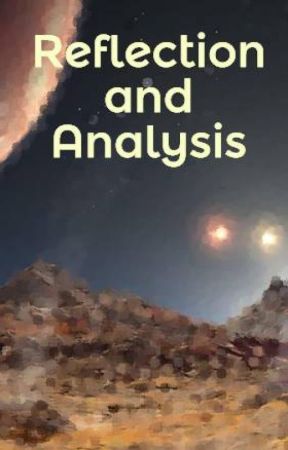A random thought that has been crossing my mind of late is the parallels between Christian fiction and Woke fiction.
The target audience for Christian Fiction is the Christian, and not non-Christian, while the target audience for Woke Fiction is the woke individual. Yet, despite this, just as Christians think Christian Fiction is for the non-Christian and a way to get the Christian message across, the woke individual thinks the target audience for Woke Fiction is the person uninitiated into woke beliefs, such as women are amazing and can do nothing wrong and men suck and do everything wrong.
What neither understands is how alienating Christian Fiction often is for the non-Christian and how alienating Woke Fiction is for the non-woke individual. It's not understood that nobody likes the message being hammered into their head or that nobody constantly likes being told they're doing something wrong, particularly when the claim of doing something wrong has no basis in reality, which for Christian Fiction includes what is written in the Bible.
And I think--
Well, Disney works were long championed as Christian fiction of sorts, as works that fit the Christian narrative, so is it surprising that the woke individuals wanted to do the same? By this, I mean substituting what they saw as Christian messaging with woke messaging, thus rectifying the balance, or at least doing so in their heads.
The problem is Disney works were never Christian fiction, but instead universal messages that are not unique to Christianity, but can be found in other cultures and belief systems around the world. There is a difference between a Christian saying Disney was clean and thus safe for consumption by Christian children, but they were also safe for the non-Christian and a way for Christian and non-Christian children to come together and have something in common.
In contrast, Chrsitian fiction--to quote Chelseea R.H. from her article "The Root Problem With Christian Fiction"--
"I can hardly say I'm well-read when it comes to Christian romance. But reading a romance the other day, it occurred to me that the author was constantly hammering this idea: the most powerful thing God can do is give you a husband, a good life, and a happy ending."
This isn't to say happy endings are wrong. Still, in Christian fiction, something I've noticed is that very often, only the Christian is allowed a happy ending, or there is a message that anybody who actually studied the Bible, Christian or not, knows isn't actually there in the Bible.
And I think quite a few of us have met that person who claims to be Christian and acts like their life is perfect, working like they can do no wrong.
And I think everyone has heard about that Christian.
You know, the so-called virtuous one who will conveniently bring up things not actually in the bible to snub others while conveniently ignoring anything in the Bible that ruins their image of virtue. And in this, they also expect the characters in their fiction to live up to this virtuous image, never venturing into sinful territory, such as divorce never coming up unless the work is damning the divorce.
I think this is important to bring up because the woke individual is doing exactly the same thing, something many hold against Christians for doing. They present themselves within narratives that they, through their characters, are virtuous. Still, outside of work, they go on and on about how they are morally in the right, and that's why everyone else should effectively just put up and shut up.
And like that Christian, there is never any room for debate, even though things such as women always being virtuous and men always being evil is a definite untruth, in the same way, this idea that the Christian is always virtuous and the non-Christian is always evil is an untruth.
The funny thing is, my thought process was originally just about why I'm often turned off Christian fiction, and I started realizing there were parallels. And I was going to say holiday movies are an exception to the rule, but then it hit me that these movies are actually marketed not as Christian fiction, but holiday movies and as such they're more likely to not have the elements that grate on non-Christians like Christian fiction does.
But my take away was that woke individuals should actually learn from the mistakes made by those who create Christian fiction, rather than repeating them, but I also thought to myself...
Mary Sue type characters are often hit and miss, particularly if messaging is involved, but audiences I think would much rather have a perfect character who legit does no wrong over a perfect character who legit does stuff wrong and yet is still treated as perfect, so is it possible Woke Fiction alienates even more than Christian Fiction, or are they equally annoying? Christian fiction actually does have a few works that break the mold, but the same can't be said about Woke Fiction from what I've seen.
Perhaps though time will tell.

YOU ARE READING
Reflection and Analysis
RandomThis is a collection of essays related to series I either read or watch, although there is only one chapter at this point I wish to discuss.
